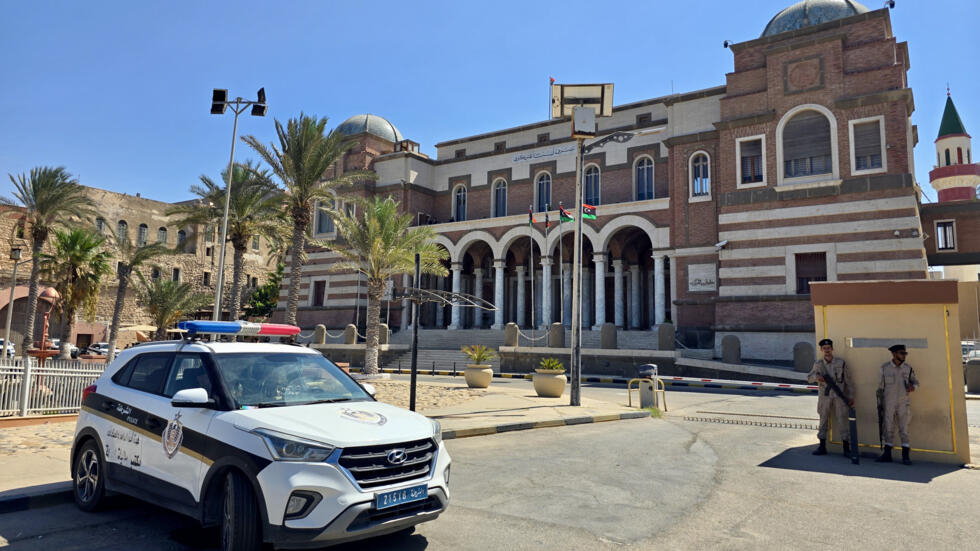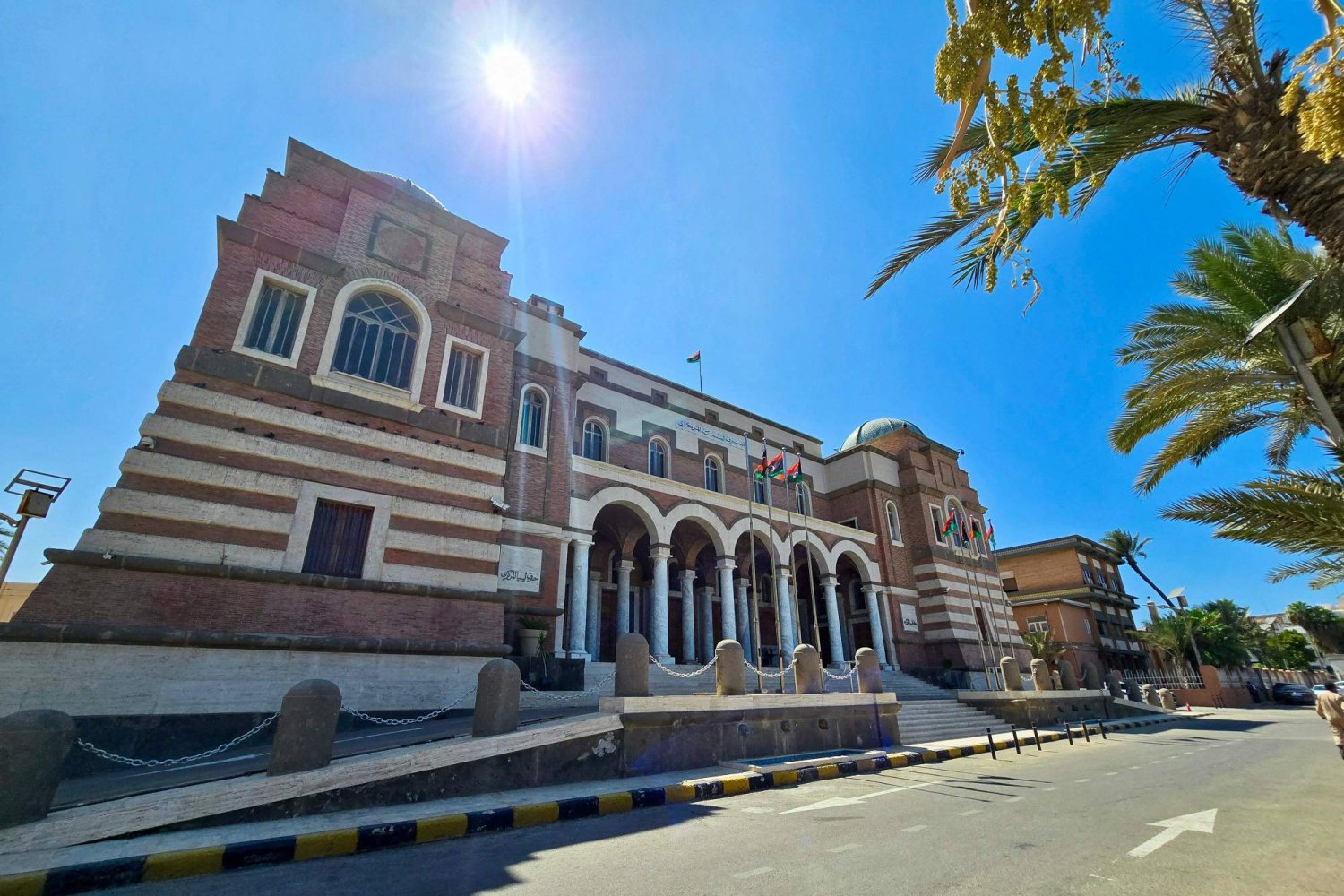
The United Nations Support Mission in Libya
(UNSMIL) held urgent talks in Tripoli on Monday, seeking to resolve a deepening crisis involving the Central Bank of Libya (CBL).
Libya‘s eastern government, led by Prime Minister Osama Hammad, announced the suspension of all oil production and exports until further notice. Libya’s National Oil Corporation (NOC) said that the losses incurred due to a decision by the eastern government to shut down oil and gas operations in the country have exceeded $120 million.
The Libyan National Oil Company also announced that it had declared force majeure in the El Feel field in a letter published on X.
https://twitter.com/NOC_Libya/status/1830635210838323696
NOC's letter on X The El Feel oil field in southwestern Libya. (via Google Maps)
The El Feel oil field in southwestern Libya. (via Google Maps)
In a statement, the United Nations Support Mission in Libya noted that consultations concluded with "significant understanding" between parties. Both sides agreed to submit a draft agreement to their respective chambers for review, aiming to finalize and sign the deal by Tuesday.
https://twitter.com/UNSMILibya/status/1830705649618927617
UNSMIL's statement on X
As part of its efforts to resolve the crisis surrounding the Central Bank of Libya (CBL), the United Nations Support Mission in Libya (UNSMIL) hosted separate talks at its headquarters in Tripoli, with representatives from the House of Representatives (HoR) and the High Council of State (HCS) on one side, and the Presidential Council on the other.
The consultations, which took place from morning until late on Monday, Sept. 2, were marked by open and candid dialogue. Consultations concluded with significant understandings between HoR and HCS representatives on ways to address the CBL crisis and restore the confidence of Libyans and international partners in this vital institution. They further agreed to submit the draft agreement to their respective Chambers for review, with the aim of finalizing and signing the agreement on Tuesday.
United Nations Support Mission in Libya
On Monday, oil prices edged higher, recovering some losses from late last week. The ongoing halt in Libyan oil exports, coupled with easing concerns about increased OPEC+ production from October, influenced this price adjustment.
The talks, hosted by UNSMIL, involved representatives from Libya’s House of Representatives (HoR) and High Council of State, as well as the Presidential Council.
The CBL, as Libya’s sole legal repository for oil revenues, is crucial for paying state salaries across the country. If the current crisis disrupts these functions, Libyan citizens will soon face severe economic hardships.

Eastern factions, including the HoR led by Speaker Aguila Saleh and the Libyan National Army (LNA) under Commander Khalifa Haftar, oppose the Tripoli-based Presidency Council’s efforts to remove Governor Sadiq Kabir. Their oil blockade is gradually starving the CBL of funds, while also reducing the condensate available for power plants, potentially leading to widespread electricity blackouts.
The state-owned National Oil Corporation reported that as a result of closures, total oil production had plunged to just over 591,000 barrels per day (bpd) by August 28, down from nearly 959,000 bpd on August 26. This decline represents a loss of over $120 million in just three days. Production had been approximately 1.28 million bpd on July 20.
The ongoing crisis threatens to end a four-year period of relative peace in Libya, a country that has been divided between eastern and western factions for more than a decade.